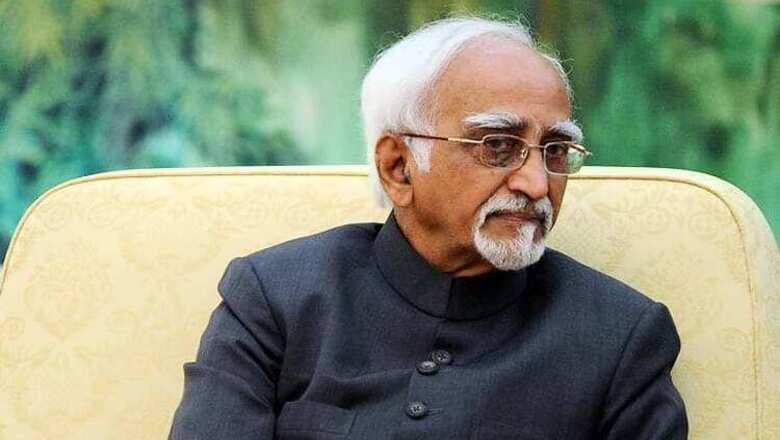
views
Jakarta: Emphasising that India and Indonesia share similar aspirations, Vice President Hamid Ansari on Monday said the time is ripe for the two countries to work together in international forums like the WTO and the UN to bring more equity into the international order.
"India and Indonesia have similar aspirations to have an open trading system through global organisations like the WTO. We have also shown a strong commitment, based on the principle of common but differentiated responsibility, as we take up our own role to address issues related to climate change," Ansari said.
He said the two countries are also together in the search for reforming the UN, particularly the Security Council. "India believes that the 70th Anniversary of the United Nations is an appropriate occasion for it. The role of the United Nations particularly its Security Council needs to reflect the requirement of developing countries to have a greater say in decision making," Ansari said.
As he pitched for increased cooperation on various fronts, Ansari said the "time is also ripe for our common engagement for bringing greater equity into the international order."
Ansari said India and Indonesia share many things and have economies with strong complementarities and challenges. He, however, added that despite the large size and rapid growth of our economies, the trade and investment between India and Indonesia remains "modest". There is a need to synergies our efforts in the areas of economy and business to correct the sectoral and directional imbalance of our trade and to further diversify it, he said.
He said there is a considerable potential for expanding trade in the areas of automotive components, automobiles, engineering products, IT, pharmaceuticals, bio-technology and healthcare sectors. Given their strategic significance, Infrastructure development and energy, both traditional and
renewable, are key areas for enhancing our cooperation.
The Vice President said that as the countries in the East Asian region strive for greater economic integration, the safety of sea lanes - critical for maritime trade and commerce, maritime security, and access to marine resources in accordance with accepted international norms, continues to assume greater significance.
"The evolving situation in the South China Sea demands restraint from all parties. We support collective efforts by ASEAN Member States and China to conclude the Code of Conduct to keep peace and stability in the region," he added.
Speaking at the lecture jointly organised by the Indian Embassy and Indonesia's Ministry of Foreign Affairs, Ansari said there is tremendous potential for enhancing defence ties between the two countries.
"Indonesia has played host to ships of the Indian Navy and the Indian Coast Guard on several occasions in recent years. We are also happy that Indonesian ships are making more frequent visits to the Indian ports. Our coordinated patrols between Belawan and the Andaman Islands which are going on for 13 years, have been enhanced to the level of joint exercises," he said.
The spreading tide of extremism and terrorism, Ansari said, is a threat both countries face. He said that dealing successfully with such threats requires strong cooperation and expressed happiness that both sides have taken some steps to institutionalise cooperation in this area.
Ansari said non-traditional threats such as piracy, smuggling, transnational crimes and drug-trafficking are on the rise and require determined and coordinated action.
The Asia-Pacific region and the world would benefit from greater India-Indonesia cooperation, including through partnerships with like-minded countries and by strengthening regional institutions like the ASEAN, he said.















Comments
0 comment